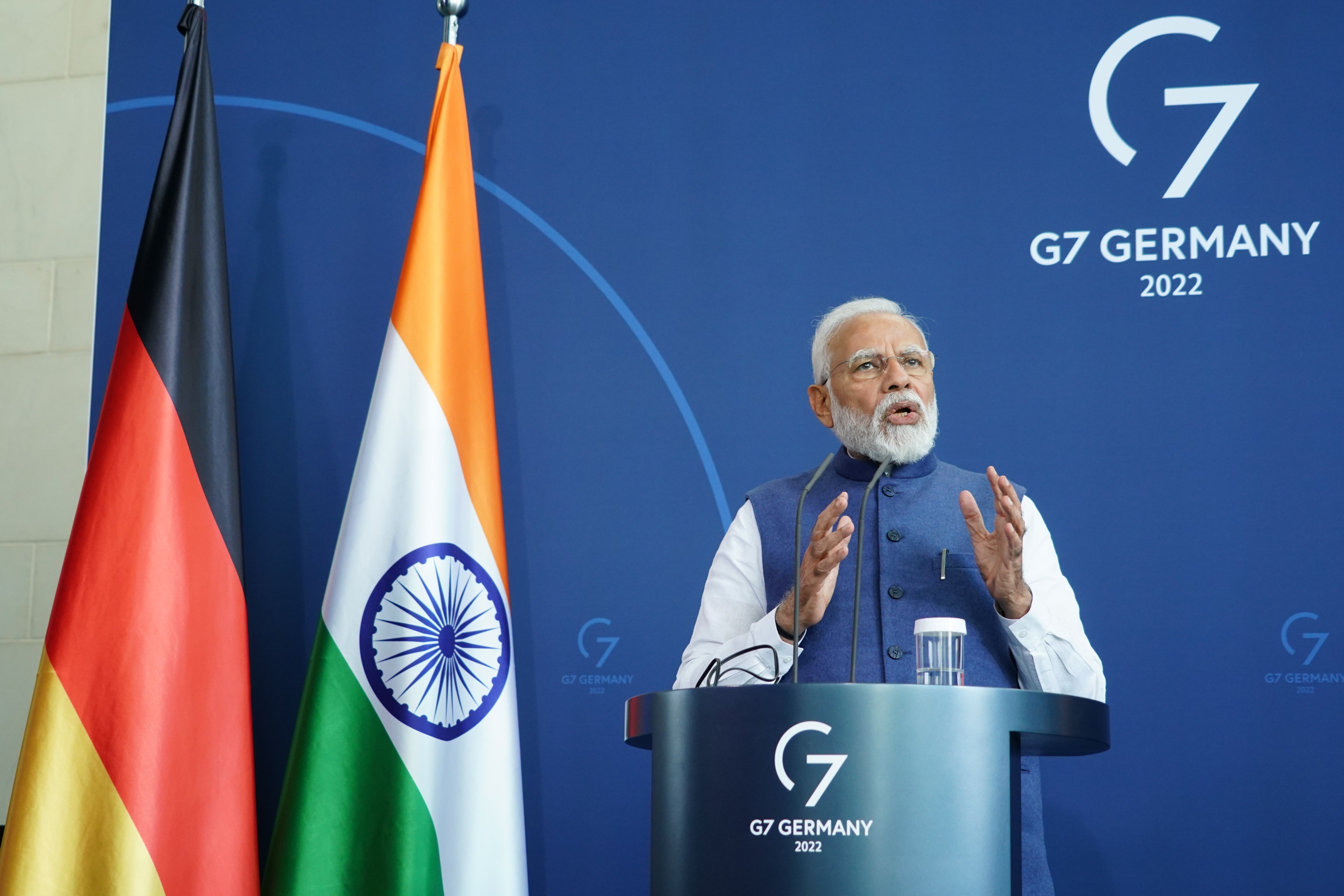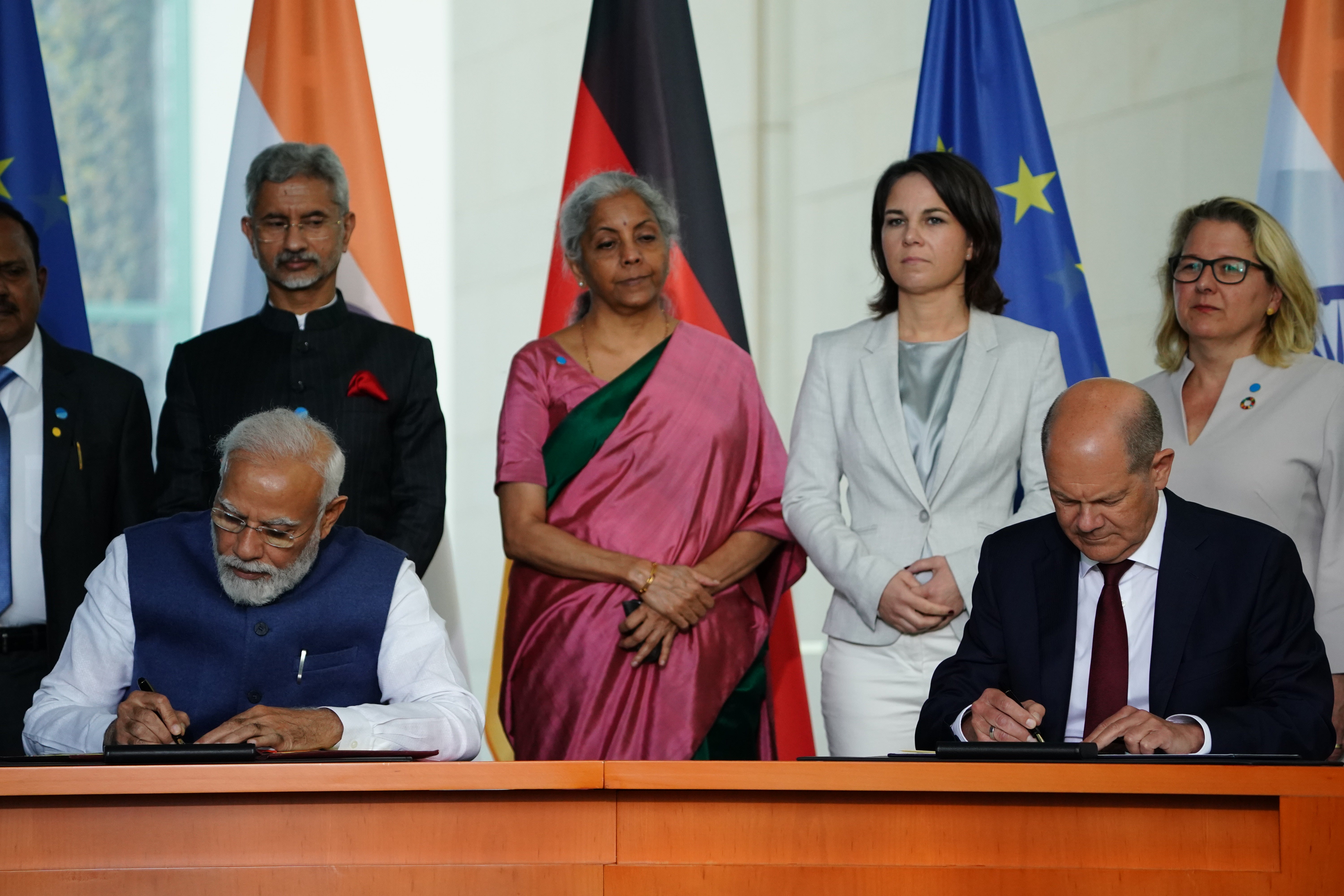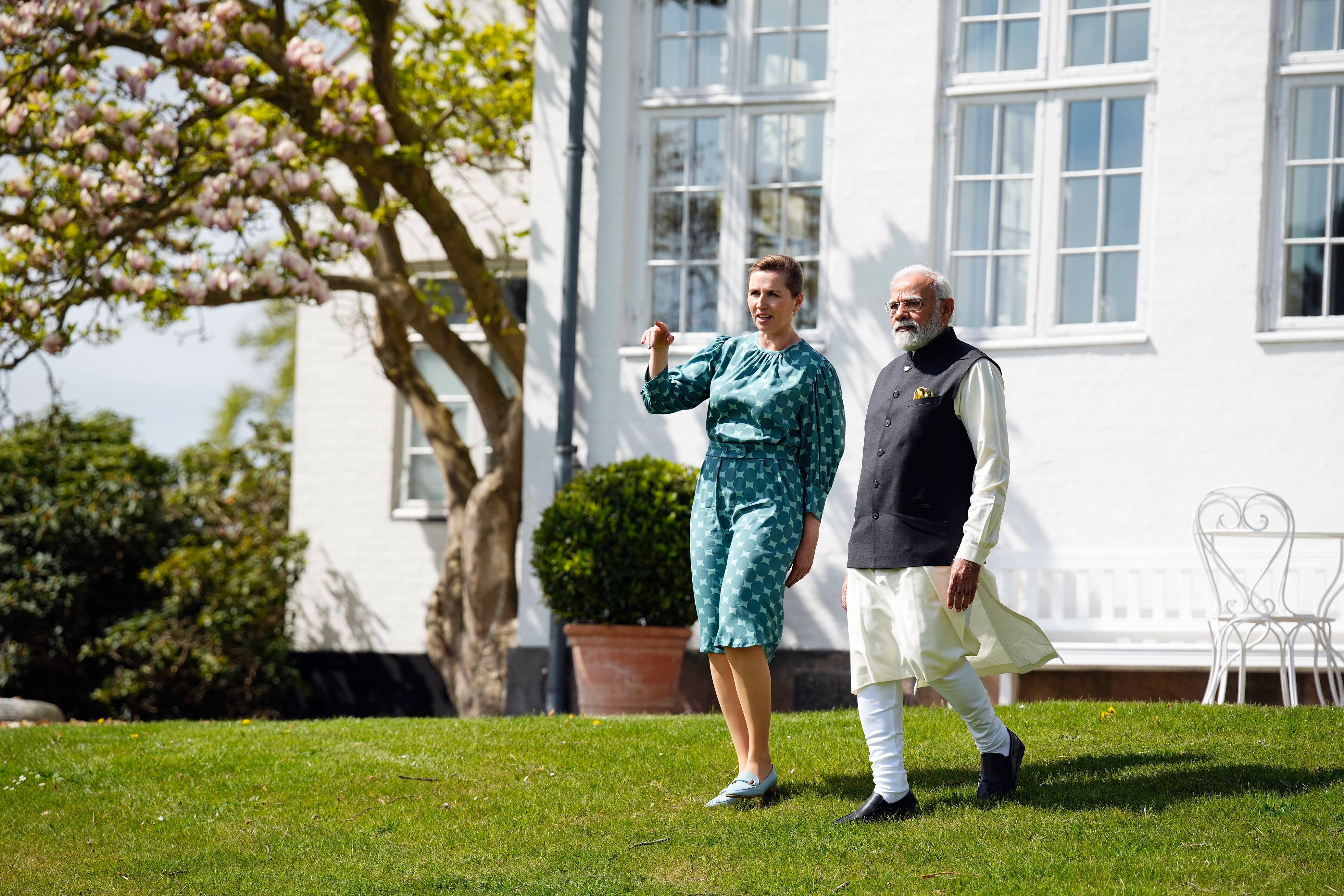An opportunity, not a nuisance: Modi’s tour reveals closer ties between India and Europe
Narendra Modi is visiting three European countries this week as Delhi looks to cement ties, despite differences over Ukraine

Indian prime minister, Narendra Modi, is in Europe for a crucial three-nation trip, a first since the restrictions relating to the Covid-19 pandemic began, which will set the tone for discussions on several post-pandemic issues including economic recovery and the Ukraine conflict.
On the first day of his trip in Germany, Mr Modi met German chancellor, Olaf Scholz, and addressed the Indian diaspora there. He met Denmark’s prime minister, Mette Frederiksen, on Tuesday and is set to meet just reelected Emmanuel Macron in France on Wednesday.
Mr Modi’s trip to Europe is significant for several reasons, including due to the timing of the trip that comes amid Russia’s continuing atrocities in Ukraine which has divided the world. Western nations have been increasingly pressuring India to take a stand while the south Asian nation continues to remain “neutral” while continuing its trade with Moscow.
However, the visit will also set the tone for increased economic and green partnership between the key western nation countries and India as it strives to establish itself more strongly in green technologies.
It was the first meeting between Mr Modi and Mr Scholz since the latter became the head of his country. However, the Indian prime minister had already interacted with him last year at G20 when Mr Scholz was the finance minister.
The meeting is also crucial because Germany has a “significant proportion” of the 1 million population of the Indian diaspora in Europe, a statement from the prime minister’s office on Sunday highlighted.
“The Indian diaspora is an important anchor in our relations with Europe and therefore I will take the opportunity of my visit to the continent to meet our brothers and sisters there,” Mr Modi said.
At the India-Germany Intergovernmental Consultations (IGC), the two countries stressed the importance of an effective rules-based international order.
Mr Modi emphasised that the India-Germany partnership “could serve as an example of success in a complex world” in a statement. He also invited German participation in India’s Atmanirbhar Bharat (Independent India) campaign aimed at making India a manufacturing hub.
Following the meeting, India’s newly appointed foreign secretary, Vinay Kwatra, said the two leaders signed several declarations of intent, including increased participation in defence, migration and green technologies such as green hydrogen, aimed at establishing a green hydrogen hub in India.

However, the meeting made headlines mainly over Germany’s stand on Russia and whether India will face increased pressure on its relationship with Moscow. Officials later confirmed India had been invited to a G7 summit in June.
According to Professor Harsh V Pant, vice-president of foreign policy at the New Delhi-based Observer Research Foundation, what’s interesting about Mr Modi’s decision to visit to Europe is that it comes without any hang-ups about the Ukraine question.
“The message is quite clear, while there are differences, those differences are not overshadowing larger relations that India and Europe are developing at the moment,” Mr Pant says. “And India is not defensive about its position on Ukraine and there is a greater degree of understanding about India’s position on Ukraine.”
Mr Pant points out that several European leaders – including UK prime minister, Boris Johnson – have visited the country lately, showing the importance of relations that India has developed with western countries.
The green partnership was again in focus on day two of Mr Modi’s trip to Denmark where he met Ms Frederiksen and will attend the second India-Nordic summit, which will include leaders of Finland, Iceland, Norway and Sweden.
Economic growth, climate change and global security have been identified as key areas of cooperation between all countries as part of the summit. This format is quite special since the only other country with which the Nordic countries have this kind of engagement is the US.
Mette Frederiksen was in India on a state visit from 9 to 11 October 2021, the first visit by a government head following the worst of the pandemic. Climate change is also a big part of the discussion that India is having with Nordic countries, Mr Pant says.
“If you look at Denmark, India has actually been in regular contact with the country and climate change, green technology, all of these sectors which are at the coming age of 21st century are at the centre of these ties,” he adds.
Denmark also urged India to put pressure on Russia over Ukraine. “Putin has to stop this war,” Frederiksen said, adding: “I hope that India will influence Russia.”

In Paris, Wednesday’s meeting is between two countries which already had close ties, including a strategic partnership in defence and security, space and civil nuclear cooperation. The meeting is expected to focus on increasing ties to counter China’s rising influence.
Mr Pant says it shows how western Europe sees India as an opportunity instead of a nuisance.
“India is now extremely close to western Europe, and western Europe despite having the challenge of navigating the Ukraine crisis, is looking at India as an opportunity,” he says. “Rather than in the past India used to be a problem, it used to be a perpetual naysayer.
“Today, India is part of the solution to many of the global problems and as western Europe pivots away from China, India is seen as a potential opportunity that needs to be nurtured and tapped into and I think that’s the larger picture you get from, not only from the prime minister Modi’s visit to Europe but also the visits that are happening to India as well.”






Join our commenting forum
Join thought-provoking conversations, follow other Independent readers and see their replies
Comments